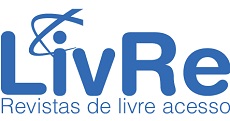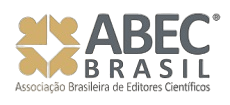Turismo em áreas rurais: Quais abordagens de métodos são adotadas?
DOI:
https://doi.org/10.36661/2596-142X.2025v7n1.14822Palavras-chave:
Turismo, Áreas Rurais, Métodos de pesquisaResumo
Este estudo tem a finalidade de analisar o uso de métodos qualitativos, quantitativos e mistos nos estudos sobre turismo em áreas rurais por meio de uma análise de conteúdo dos principais periódicos escolhidos pelo fator de impacto e também por serem referência em estudos rurais. Para isso, foi realizada uma revisão sistemática da literatura no período de 2017 a 2022, com análise de 49 artigos. Três periódicos da área foram selecionados para as buscas: Tourism Management, Tourism Management Perspectives e Journal of Rural Studies. Observou-se que a aplicação da abordagem qualitativa tem ocorrido com mais frequência nas pesquisas sobre turismo em áreas rurais. Sua adoção ocorre pelo fato de compreender um determinado fenômeno em maior profundidade, de forma interpretativa, com base no conhecimento, experiências, percepção dos envolvidos. Considerando os periódicos, percebe-se aderência a abordagem qualitativa, seguida da abordagem quantitativa, e de métodos mistos. Destaca-se que a abordagem de métodos mistos, embora esteja aumentando, ainda está longe de ser dominante. Espera-se com esta revisão sistemática oferecer compreensão sobre as abordagens de pesquisa não apenas para os autores, que buscam lacunas para desenvolver novas pesquisas, mas também para os revisores e editores de periódicos que atuam na área de estudos rurais.
Downloads
Referências
ARORA-JONSSON, S. LARSSON, O. Lives in limbo: Migrant integration and rural governance in Sweden. Journal of Rural Studies, v. 82, p. 19–28, fev. 2021.
AYIINE-ETIGO, D. A. AMANKWAH-AMOAH, J. COVID-19 and Africa’s aviation and tourism sectors: A new agenda for the future? Tourism Management Perspectives radarweg 29, 1043 nx amsterdam, netherlandselsevier, jul. 2021.
BARBOSA, S. L. O estudo de caso e a evolução da pesquisa em administração: limitações do método ou dos pesquisadores. Anais. XXXII Encontro da Anpad. 2008.
BARDIN, L. Análise de conteúdo. São Paulo. Ed. 70, 2011.
BROWN, D. L. et al. The multi-scalar organization of aging-related services in US rural places. Journal of Rural Studies, v. 68, p. 219–229, maio 2019.
CRANG, M. Qualitative method: the new orthodoxy? Prog. Hum. Geogr. 26, 647–655, 2002.
CRESWELL, J. W. Designing and Conducting Mixed Methods Research. SAGE, 2010.
DETOTTO, C. GIANNONI, S. GOAVEC, C. Does good governance attract tourists? Tourism Management. The boulevard, langford lane, kidlington, oxford ox5 1gb, oxon, englandelsevier sci ltd, , fev. 2021.
DOHMWIRTH, C.; HANISCH, M. Women’s active participation and gender homogeneity: Evidence from the South Indian dairy cooperative sector. Journal of Rural Studies, v. 72, p. 125–135, dez. 2019.
EVANS, N. M. STEWART, W. P. DAVIS, M. A. Phosphorous, farms, and families: Institutional narratives about agricultural intensification and water quality in northeastern Wisconsin. Journal of Rural Studies, v. 80, p. 418–426, dez. 2020.
FAŁKOWSKI, J. CHLEBICKA, A. ŁOPACIUK-GONCZARYK, B. Social relationships and governing collaborative actions in rural areas: Some evidence from agricultural producer groups in Poland. Journal of Rural Studies, v. 49, p. 104–116, jan. 2017.
FESTA, G. et al. Opportunities and challenges in the contribution of wine routes to wine tourism in Italy – A stakeholders’ perspective of development. Tourism Management Perspectives, v. 33, p. 100585, jan. 2020.
FONG, V. H. I. HONG, J. F. L. WONG, I. A. The evolution of triadic relationships in a tourism supply chain through coopetition. Tourism Management, v. 84, p. 104274, jun. 2021.
FONTANA, A. FREY, J. H. Interviewing: the art of science. Handbook of qualitative Research, 1994.
GAJDOŠÍK, T. et al. Destination structure revisited in view of the community and corporate model. Tourism Management Perspectives, v. 24, p. 54–63, out. 2017.
GALVÃO, T. F. PANSANI, T. DE S. A. HARRAD, D. Principais itens para relatar Revisões sistemáticas e Meta-análises: A recomendação PRISMA. Epidemiologia e Serviços de Saúde, v. 24, n. 2, p. 335–342, jun. 2015.
GAMAGE, T. C. TAJEDDINI, K. A multi-layer organizational culture framework for enhancing the financial performance in tourism and hospitality family firms. Tourism Management, v. 91, p. 104516, ago. 2022.
GUARINO, A. DONEDDU, S. Agricoltura e turismo: nuove reciprocità in areesvantaggiate del mediterraneo. Agriregionieuropa, 27, 2011.
HARTMAN, S. PARRA, C. DE ROO, G. Framing strategic storytelling in the context of transition management to stimulate tourism destination development. Tourism Management, v. 75, p. 90–98, dez. 2019.
HIDLE, K. How national parks change a rural municipality’s development strategies – The Skjåk case, Norway. Journal of Rural Studies, v. 72, p. 174–185, dez. 2019.
HRISTOV, D. MINOCHA, S. RAMKISSOON, H. Transformation of destination leadership networks. Tourism Management Perspectives, v. 28, p. 239–250, out. 2018.
HRISTOV, D. SCOTT, N. MINOCHA, S. Distributed leadership typologies in destination management organisations. Tourism Management Perspectives, v. 28, p. 126–143, out. 2018.
IZURIETA, G. et al. Exploring community and key stakeholders’ perception of scientific tourism as a strategy to achieve SDGs in the Ecuadorian Amazon. Tourism Management Perspectives, v. 39, p. 100830, jul. 2021.
KALLERT, A. et al. The Cultural Political Economy of rural governance: Regional development in Hesse (Germany). Journal of Rural Studies, v. 87, p. 327–337, out. 2021.
KRY, S. et al. Assessment of the changing levels of livelihood assets in the Kampong Phluk community with implications for community-based ecotourism. Tourism Management Perspectives, v. 34, p. 100664, abr. 2020.
KUBICKOVA, M.; MARTIN, D. Exploring the relationship between government and destination competitiveness: The TALC model perspective. Tourism Management, jun. 2020.
LELO DE LARREA, G. et al. An integrative systematic review of innovation research in hospitality and tourism. Tourism Management Perspectives, v. 37, p. 100789, jan. 2021.
LIN, D.; SIMMONS, D. Structured inter-network collaboration: Public participation in tourism planning in Southern China. Tourism Management, 2017.
LUCREZI, S. et al. Scuba diving tourism systems and sustainability: Perceptions by the scuba diving industry in two Marine Protected Areas. Tourism Management, v. 59, p. 385–403, abr. 2017.
MACH, L. et al. Protected area entry fees and governance quality. Tourism Management, v. 77, p. 104003, abr. 2020.
MANCINI, F. et al. Monitoring tourists’ specialisation and implementing adaptive governance is necessary to avoid failure of the wildlife tourism commons. Tourism Management, v. 81, p. 104160, dez. 2020.
MEMILI, E. et al. The interplay between socioemotional wealth and family firm psychological capital in influencing firm performance in hospitality and tourism. Tourism Management Perspectives, v. 34, p. 100651, abr. 2020.
MINAYO, M. C. S. SANCHES, O. Quantitative and Qualitative Methods: Opposition or Complementarity? Cad. Saúde Públ., Rio de Janeiro, 9 (3): 239-262, 1993.
MINGOTI, S. A. Análise de dados através de métodos de estatística multivariada: uma abordagem aplicada. 1° edição. Belo Horizonte: Editora UFMG. 297 p. 2005.
MOLDEN, O. et al. Beyond localism: The micropolitics of local legitimacy in a community- based organization. Journal of Rural Studies, v. 50, p. 60–69, fev. 2017.
MORETTIN, P. A. BUSSAB, W. O. Estatística básica. 6ª ed. São Paulo: Saraiva, 2011.
MORGAN, G. SMIRCICH, L. The case for Qualitative Research. The Academy of Management, v. 5, n. 4, p. 491–500, 1980.
MUSAVENGANE, R. KLOPPERS, R. Social capital: An investment towards community resilience in the collaborative natural resources management of community-based tourism schemes. Tourism Management Perspectives, v. 34, p. 100654, abr. 2020.
NGUYEN, T. Q. T. et al. Conceptualising networks in sustainable tourism development. Tourism Management Perspectives, v. 32, p. 100575, out. 2019.
NORDIN, S. et al. Destination governance transitions in skiing destinations: A perspective on resortisation. Tourism Management Perspectives, jul. 2019.
NUNKOO, R. et al. Public trust in mega event planning institutions: The role of knowledge, transparency and corruption. Tourism Management, v. 66, p. 155–166, jun. 2018.
ONITSUKA, K. HOSHINO, S. Inter-community networks of rural leaders and key people: Case study on a rural revitalization program in Kyoto Prefecture, Japan. Journal of Rural Studies, v. 61, p. 123–136, jul. 2018.
PANZER-KRAUSE, S. The lost rural idyll? Tourists’ attitudes towards sustainability and their influence on the production of rural space at a rural tourism hotspot in Northern Ireland. Journal of Rural Studies, v. 80, p. 235–243, dez. 2020.
RESTREPO, N.; LOZANO, S. ANTON CLAVE, S. Measuring institutional thickness in tourism: An empirical application based on social network analysis. Tourism Management Perspectives, jan. 2021.
REZENDE, M. S. C. A gestão do conhecimento em uma organização de software: construindo uma teoria substantiva. Tese de Doutorado – Universidade Federal de Santa Catarina, Florianópolis, 2017.
ROCCA, L. H. D. ZIELINSKI, S. Community-based tourism, social capital, and governance of post-conflict rural tourism destinatins: the case of Minca, Sierra Nevada de Santa Marta, Colombia. Tourism Management Perspectives, v. 43, p. 100985, 2022.
SAMPAIO, R. MANCINI, M. Estudos de revisão sistemática: um guia para síntese criteriosa da evidência científica. Revista Brasileira de Fisioterapia, v. 11, n. 1, p. 83–89, fev. 2007.
SAUNDERS, M.N.K. LEWIS, P. THORNHILL, A. Research Methods for Business Students, seventh ed. Pearson, Harlow, 2016.
SOONTIENS, W. et al. Bittersweet? Urban proximity and wine tourism in the Swan Valley Region. Tourism Management Perspectives, v. 28, p. 105–112, out. 2018.
SOULARD, J. et al. Social capital and destination strategic planning. Tourism Management, v. 69, p. 189–200, dez. 2018.
STRIJKER, D. BOSWORTH, G. BOUTER, G. Research methods in rural studies: Qualitative, quantitative and mixed methods. Journal of Rural Studies, v. 78, p. 262–270, ago. 2020.
THOMPSON, B. S. Ecotourism anywhere? The lure of ecotourism and the need to scrutinize the potential competitiveness of ecotourism developments. Tourism Management, v. 92, p. 104568, out. 2022.
TIKKANEN, J. et al. Ex ante evaluation of a PES system: Safeguarding recreational environments for nature-based tourism. Journal of Rural Studies, v. 52, p. 42–55, maio 2017.
TORRES, P. AUGUSTO, M. Attention to social issues and CEO duality as enablers of resilience to exogenous shocks in the tourism industry. Tourism Management, dez. 2021.
UYAR, A. et al. The link among board characteristics, corporate social responsibility performance, and financial performance: Evidence from the hospitality and tourism industry. Tourism Management Perspectives, v. 35, p. 100714, jul. 2020.
WANG, Y. Institutional interaction and decision making in China’s rural development. Journal of Rural Studies, maio 2020.
WEAVER, D. et al. Pragmatic engagement with the wicked tourism problem of climate change through `soft’ transformative governance. Tourism Management, dez. 2022.
WONDIRAD, A. TOLKACH, D. KING, B. Stakeholder collaboration as a major factor for sustainable ecotourism development in developing countries. Tourism Management, v. 78, p. 104024, jun. 2020.
YEH, C. M. Does board governance matter for foreign institutional investors to invest in listed tourism firms? Tourism Management, out. 2018.
YETISKUL, E. AYDIN, N. GÖKÇE, B. Governing the rural: The case of Izmir (Turkey) in the Post-2000 era. Journal of Rural Studies, v. 88, p. 262–271, dez. 2021.
YIN, X. CHEN, J. LI, J. Rural innovation system: Revitalize the countryside for a sustainable development. Journal of Rural Studies, v. 93, p. 471–478, jul. 2022.
YIN, R. K. Case study research: design and methods. London: Sage, 2004.
ZACH, F. J. HILL, T. L. Network, knowledge and relationship impacts on innovation in tourism destinations. Tourism Management, v. 62, p. 196–207, 2017.
ZAVATTARO, S. M. FAY, D. L. Brand USA: A natural quasi-experiment evaluating the success of a national marketing campaign. Tourism Management, v. 70, p. 42–48, fev. 2019.
Publicado
Edição
Seção
Licença
Copyright (c) 2025 Fernanda Évilin de Jesus Fortunato Lima, Erlaine Binotto, Madalena Maria Schlindwein, Thais Cremon

Este trabalho está licenciado sob uma licença Creative Commons Attribution 4.0 International License.
-
O(s) autor(es) autoriza(m) a publicação do artigo na revista;
-
O(s) autor(es) atesta (m) que a contribuição é original e inédita e que não está em processo de avaliação em outra(s) revista(s);
-
A revista não se responsabiliza pelas opiniões, ideias e conceitos emitidos nos textos, por serem de inteira responsabilidade de seu(s) autor(es);
-
É reservado aos editores o direito de proceder ajustes textuais e de adequação do artigo às normas da publicação;
-
Autores mantêm os direitos autorais e concedem à revista o direito de primeira publicação, com o trabalho simultaneamente licenciado sob a Creative Commons Atribuição 4.0 Não Adaptada, que permite o compartilhamento do trabalho com reconhecimento da autoria e publicação inicial nesta revista














